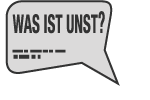“The Congo Tribunal” accuses the Congolese government and Glencore
+++ “This was a massive fraud on the Congolese people”. The Congo Tribunal reconvenes! +++
The “Kolwezi Hearings” (9-11 December) on the case of commodities giant Glencore reveal a whole new level of corruption by the Congolese government.
Only a few weeks after the biggest data leak in African financial history showed the extent of corruption under Congolese ex-president Kabila, the “Congo Tribunal” – a global economic tribunal founded by Milo Rau in 2015 – is dedicating a multi-day session from 9 to 11 December in Kolwezi (southern Congo) to the responsibility of political elites and multinational companies in the Congolese mining industry in the looting and destruction of the Congolese national economy.
The first session alone, dealing with the “Gécamines case”, in which Swiss commodities giant Glencore allegedly pays bribes to Congolese ministers, saving USD 445 million on the purchase of the mining concession, makes the embezzlements of the Kabila government, which were uncovered a fortnight ago, look downright ridiculous. “This was a huge fraud against the Congolese people,” says the president of the Congo Tribunal, Congolese lawyer Sylvestre Bisimwa, about the “Gécamines case”.
In other sessions, cases of environmental crimes and human rights violations come up. The jury includes representatives of the victims of the various cases as well as representatives of the Congolese government and the mining companies and, representing Europe, the founder of the tribunal, Milo Rau, and the Africa correspondent of Le Soir, Colette Braeckman. Various ministers – including the Minister of Mines and the Minister of Environment of the Katanga mining region – will testify publicly on the cases for the first time at the mall.
The hearings on the “Kolwezi Hearings”, led by the two lawyers Céline Tshizena and Sylvestre Bisimwa, will end on 11 December with a final verdict by the international and local jury.
Further information can be found here (press dossier).
+++ In “Practices from Euromaidan to Belarus”, the IIPM and the NTGent, together with the Münchner Kammerspiele, question strategies of international artistic solidarity in times of state violence. +++
The border between the EU and Belarus has become the site of Europe’s shame in recent months: Thousands of refugees persevereI in the cold. The Belarusian dictator Lukashenka blackmails Europe, while the European Union reacts with helplessness and violence.
In search of strategies of resistance, Milo Rau, the IIPM (International Institute of Political Murder) and the NTGent founded a globally networked “School of Resistance” as a livestream debate series in May 2020. Meanwhile, the format counts almost twenty editions; most recently, the symbolic institution of the future landed at the Akademie der Künste in Berlin or at Schauspiel Köln and published the “Cologne Declaration” for a more humane refugee policy. On 17 December at the Münchner Kammerspiele, the “School of Resistance” now questions civil and artistic practices of resistance in Belarus and Ukraine.
Live from the Kammerspiele, academics, activists and artists will explore the question of what it means to work artistically in conflict zones. What can art achieve in moments of social crisis? How can artistic practices be adapted to the conditions of a violent environment? The focus is particularly on the work of Natalia Vorozhbyt, whose piece “Погані дороги” (Destroyed Roads) depicts the violence and suffering in the war zones of Ukraine. Her film “Bad Roads” was recently nominated by the Ukrainian Oscar Committee for 2022.
With Johanna Eiworth, Polina Gordienko, Oksana Lemishka, Andrii Palatnyi, Vlad Troitskyi, Martín Valdés-Stauber, Natalia Vorozhbyt, Kasia Wojcik and Stas Zhyrkov.
For more information, click here.


